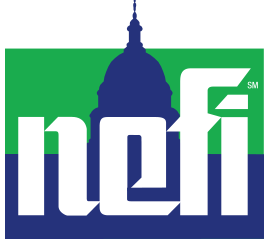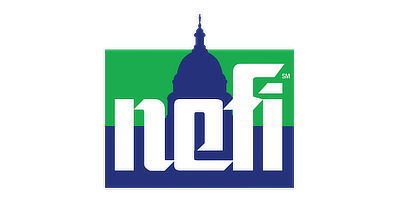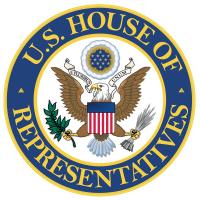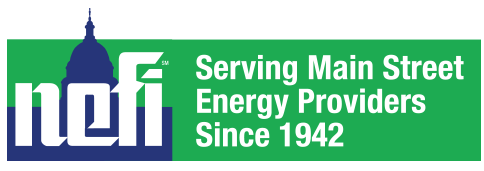By a vote of 215-214, House Republicans narrowly passed their sweeping 1,118-page reconciliation package, titled the "One Big Beautiful Bill Act (H.R.1), thereby advancing a large swath of President Trump's domestic agenda by the slimmest of margins. The legislation now heads to the Senate, where Majority Leader John Thune (R-SD) is promising to make major changes to the delicately negotiated House bill.
Note: Below is a summary of provisions of interest to NEFI members. H.R.1 is pending legislation and therefore is subject to change. Consult a qualified tax or legal professional before making business decisions based on this legislation.
Wins for American Businesses
The House-passed bill delivers substantial tax relief, particularly benefiting smaller and mid-sized businesses. Key provisions include:
-
Permanently extending the Section 199A pass-through deduction and increasing the percentage used to calculate the deduction from 20% to 23%.
-
Doubling the Section 179 expensing allowance from $1.25 million to $2.5 million in 2025 and increasing the phase-out threshold from $3.13 million to $4 million.
-
Extending 100% bonus depreciation through 2029.
-
Returning to the more generous EBITDA-based interest deduction limits that were in place from 2018-2021, allowing businesses with significant debt to deduct more interest expenses.
Good for Oil and Gas, Bad for Solar and Wind
The bill aims to boost U.S. oil and gas production by requiring quarterly onshore lease sales across western states and at least 30 offshore lease sales in the Gulf of America over 15 years. It also eases the judicial review process for energy projects and provides $2 billion to refill the Strategic Petroleum Reserve. Natural gas infrastructure development receives streamlined permitting, with projects able to secure expedited review by paying fees and receiving automatic approval if federal agencies miss one-year deadlines. The bill extends similar expedited permitting to carbon dioxide, hydrogen, and petroleum pipelines under a $10 million fee structure.
The bill terminates most "clean" electricity incentives, however. The Inflation Reduction Act's 48E Clean Electricity Investment Credit and 45Y Clean Electricity Production Credit are no longer available for projects placed in service after 2028, and to be eligible, a project must begin construction within 60 days of the bill's enactment. It also blocks access to credits from "Foreign Entities of Concern," including entities with as little as 10% foreign ownership, and eliminates transferability. These provisions are expected to significantly impede "clean energy" investments such as solar and wind.
Responding to criticism from nuclear energy advocates over early proposals to phase out incentives, the House-passed version is a little kinder to nuclear. While nuclear projects would still be subject to the 2028 phaseout, they would be eligible for the production and investment credit if they have only started construction by that date and are not yet in operation. The bill also extends a separate production credit for existing nuclear power plants through 2031 and preserves transferability for nuclear projects.
The clean hydrogen production credit (45V), alternative fuel vehicle refueling property credit (30C), residential energy efficiency credits for new and existing homes (25C and 45L), and residential solar, wind, geothermal, and battery storage (25D), would all terminate after December 31, 2025. Credits for new and used electric vehicles (25E and 30D) and electric commercial vehicles (45W) would also terminate at the end of this year. The advanced manufacturing production credit (45X) would phase out by 2032.
Employee-Related Provisions
H.R. 1 would permanently extend lower individual income tax rates and thresholds from the 2017 tax law, which are currently set to expire after 2025, and adjusts all but the highest bracket for inflation. The bill creates new deductions for tips and overtime compensation through 2028, both limited to workers earning under $160,000 annually. Note that the overtime deduction would not apply to truck drivers and other transportation workers subject to hours-of-service regulations. It also increases the child tax credit from $2,000 to $2,500 per child through 2028, requires Social Security numbers for claimants and their families, and creates an additional $4,000 standard deduction for taxpayers over 65 through 2028.
Transportation and Regulatory Costs
The bill imposes new annual registration fees to shore up Highway Trust Fund revenues through 2035, including $250 for electric vehicles and $100 for hybrids. The bill creates a public website to confirm carriers' operating authority and imposes a new $100 annual fee on individuals seeking to access this compliance information. It also removes the tariff de minimis exemption for commercial shipping imports effective July 1, 2027. Currently, imports valued at $800 or less can enter the U.S. without paying duties or tariffs. Removing this exemption could increase costs for businesses importing HVAC systems or equipment, truck parts, or other supplies sourced internationally.
NEFI Advocacy Shifts Focus to U.S. Senate
Despite months of robust advocacy by NEFI and its allies, the bill does not include a two-year extension of the Section 40A biodiesel and renewable diesel blenders' tax credit (BTC). NEFI's concern is that while the bill makes significant changes to the current 45Z clean fuel production credit – which was supposed to replace the BTC this year – it does not allow sufficient time for proper implementation.
Among the changes, the bill extends the 45Z clean fuel production credit through 2031 and limits it to fuel derived from feedstock produced in North America. Additional changes to the 45Z credit are expected as H.R.1 moves through the Senate. NEFI continues advocating for a BTC extension as a bridge during the transition period. NEFI is also seeking explicit language confirming that space and water heating applications and off-road uses qualify for 45Z, not just transportation-grade fuels as currently required under federal law.
NEFI and its association partners are also working to address market imbalances that would result from the elimination of the 25C home efficiency tax credit after 2025 while preserving state-administered electrification rebate programs offering up to $8,000 per home for heat pump installations. With the termination of the 25C credit, heating fuel customers will lose the option to receive federal tax benefits for upgrading to ENERGY STAR-rated boilers or furnaces designed for use with higher renewable fuel blends, while electrification options retain substantial federal support.
What's Next?
House Speaker Johnson wants the bill sent to Trump's desk by July 4, though that timeline remains ambitious, especially given that Senate Majority Leader Thune and other top Senate Republicans have promised significant modifications to the House package. Thune has designated the August recess as the "real deadline" for completion of the bill, citing Treasury Secretary Scott Bessent's debt ceiling warnings (the bill addresses this by increasing the debt limit by $4 trillion). Regardless, this is the most consequential legislative package likely to come before the current Congress.

 Admin - 05:00 pm -
May 28th, 2025
Admin - 05:00 pm -
May 28th, 2025 







